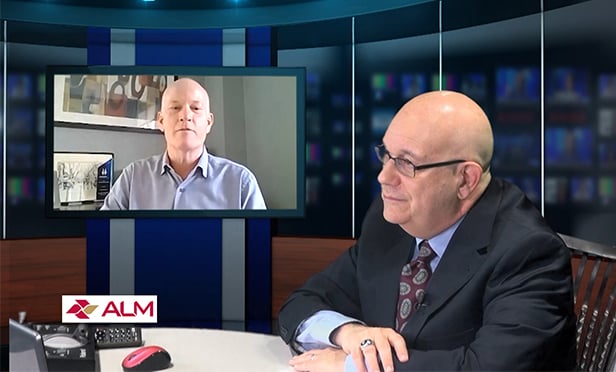SAN FRANCISCO-The new San Francisco energy benchmarking for commercial buildings requires building owners to submit an annual energy benchmarking report, as well as an energy audit report every five years. GlobeSt.com recently chatted with Spencer Lawrence, energy and sustainability consultant at EBI Consulting, about the ordinance and how building owners and managers can effectively prepare to meet compliance obligations.
GlobeSt.com: The state of California already enforces some the nation’s most stringent energy efficiency and green building standards. When did San Francisco mandate energy benchmarking for commercial buildings?
Lawrence: The Existing Commercial Buildings Energy Performance Ordinance was unanimously approved the San Francisco Board of Supervisors on February 11th, 2011. The ordinance is largely the result of the Mayor Gavin Newsom’s 2009 Task Force on Existing Commercial Buildings, which consisted of a broad range of stakeholders, such as building managers, green building experts, commercial real estate owners, utilities, banks and legislators.
GlobeSt.com: Doesn’t California already have energy benchmarking legislation on the books?
Lawrence: That is true. In October 2007, the California state legislature passed Assembly Bill 1103, which mandated the provision of benchmarking information upon sale, lease, or finance of a non-residential building over 1,000 square feet. The law was initially scheduled to come into effect for building owners in 2010, but has been delayed, and a new compliance schedule is being determined by the California Energy Commission.
GlobeSt.com: What is required of building owners under the new San Francisco ordinance?
Lawrence: The ordinance requires building owners to submit an annual energy benchmarking report, as well as an energy audit report every five years. The ordinance augments California Assembly Bill 1103 through four main areas. First, it accelerates the benchmarking schedule. Second, it requires annual, rather than transactional, benchmarking. Third, energy data will be publicly disclosed. Fourth, the ordinance requires mandatory energy audits every five years. Benchmarking reports (referred to as an Annual Energy Benchmarking Summary, or AEBS) for buildings over 50,000 square feet were due October 1st, 2011, however reports can and should still be sent to the San Francisco Department of the Environment via Energy Star’s Portfolio Manager, in addition to building tenants. Benchmarking reports will be due by April 1st every year hereafter, for buildings 25,000 square feet and up in 2012, and 10,000 square feet and up in 2013. In addition, new construction must benchmark within 24 months of occupancy. The AEBS must include building information such as the gross square footage, energy performance ratings, energy use intensity figures, and greenhouse gas emissions figures. All in all, the ordinance will affect approximately 2,700 SF buildings totaling 205 million square feet.
GlobeSt.com: Are other cities or states enacting similar laws?
Lawrence: Yes, numerous other cities and states have enacted energy benchmarking and disclosure laws, such as Austin, Seattle, Portland, the District of Columbia, New York City, and the state of Washington.
GlobeSt.com: Why is it important for building owners and managers to complete the audit? What are the risks involved for not reporting energy data and not meeting the deadline?
Lawrence: Energy benchmarking presents significant benefits to building owners. By benchmarking your building, you can compare to other buildings of a similar size and type in similar climates, providing a useful relative assessment of its performance. By normalizing energy use, energy outliers can be identified and improved, and high performing buildings are rewarded through higher valuation. Furthermore, the city of San Francisco, after a non-compliance warning period of up to 75 days, may levy fines up to $100 a day for buildings over 50,000 square feet who do not submit a report, or $50 a day for buildings under 50,000 square feet. In addition, the city will conduct random checks of submitted reports to ensure quality, and fines may be assessed if quality is deemed insufficient.
GlobeSt.com: How can building owners and managers effectively prepare to complete the energy audit?
Lawrence: Building owners and managers should immediately contact tenants to obtain approval for utility data release in order to collect the most recent 12 months of data. In addition, contact your utility provider to see if they provide whole-building aggregated data, which can be provided without tenant approval. Create an Energy Star portfolio manager account and enter energy and building information accordingly. Due to the already-passed deadline and potential for significant fines, building owners and managers may choose to hire an outside company to handle their benchmarking and disclosure obligations for them. Many such benchmarking companies can also provide energy auditing services, which will be required in several years.
Continue Reading for Free
Register and gain access to:
- Breaking commercial real estate news and analysis, on-site and via our newsletters and custom alerts
- Educational webcasts, white papers, and ebooks from industry thought leaders
- Critical coverage of the property casualty insurance and financial advisory markets on our other ALM sites, PropertyCasualty360 and ThinkAdvisor
Already have an account? Sign In Now
© 2024 ALM Global, LLC, All Rights Reserved. Request academic re-use from www.copyright.com. All other uses, submit a request to [email protected]. For more information visit Asset & Logo Licensing.








